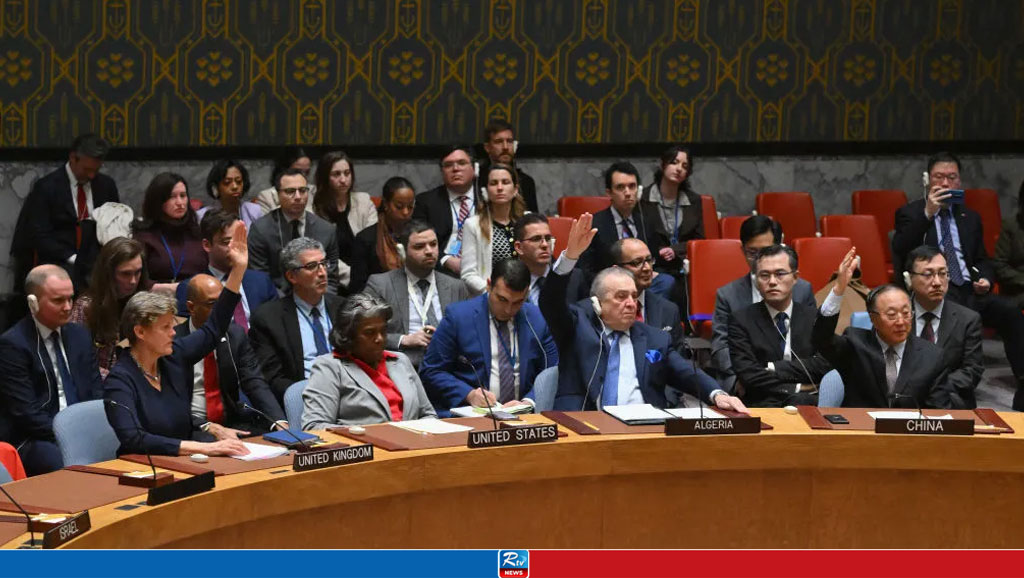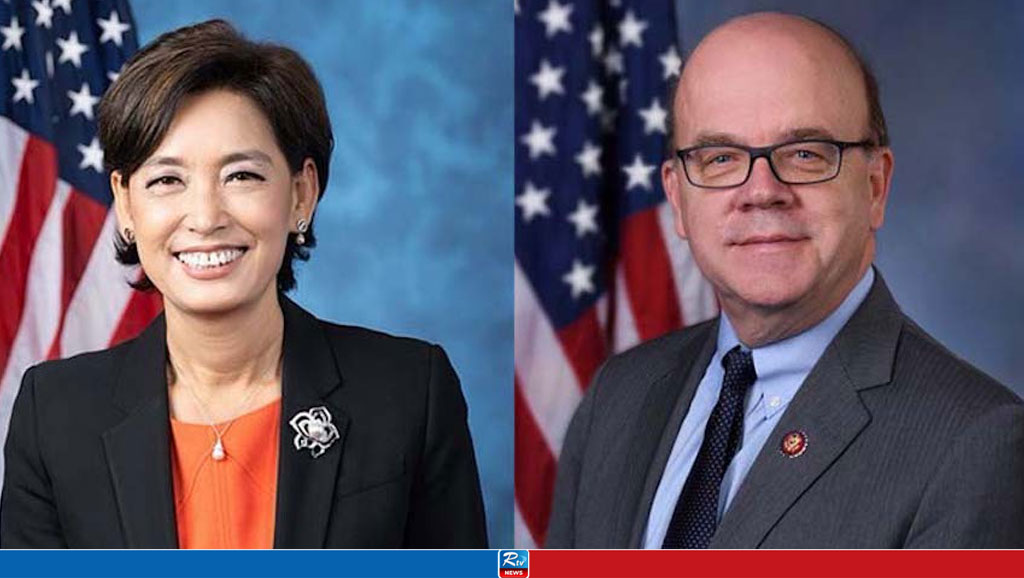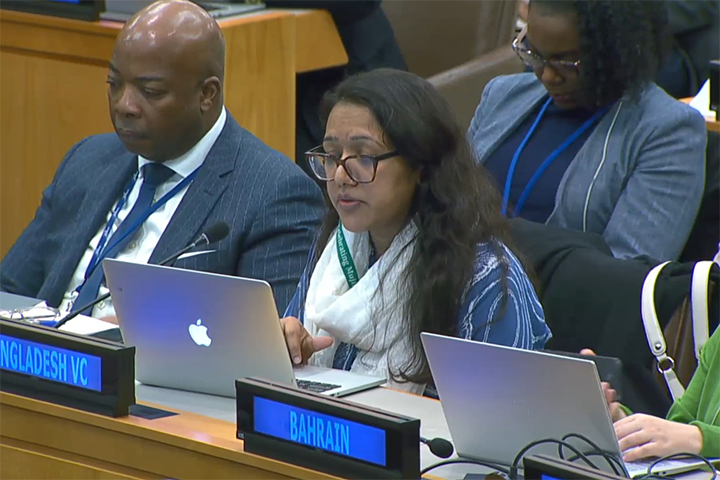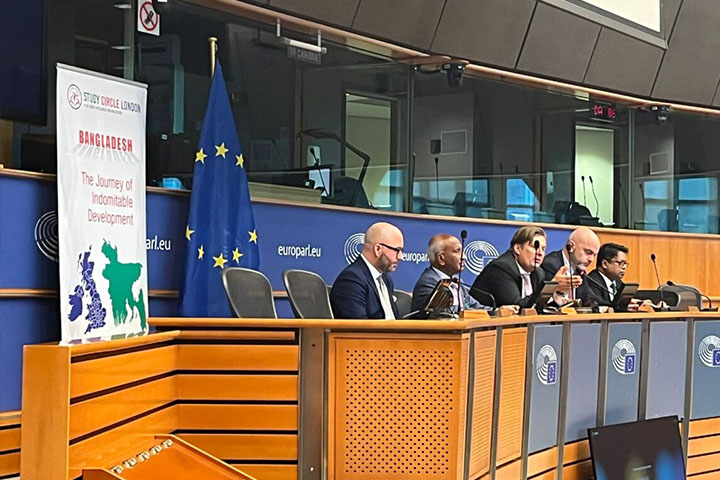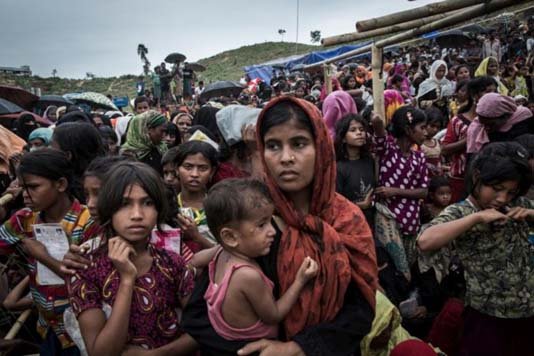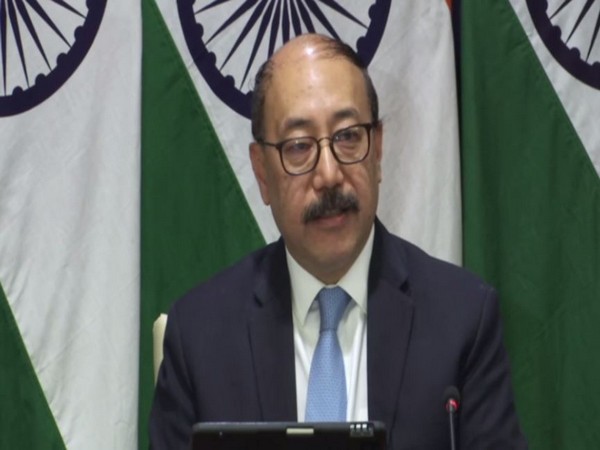European Parliament: conference condemns “misinformed” resolution on human rights situation in Bangladesh
Speaking to EU Today exclusively after the event, German MEP Maximillian Krah, when asked about his impressions of the European Parliament resolution stated: “I was against it, because in general I’m really sceptical against these resolutions because first of all they come very urgently and presently from the NGO bubble.
“They usually care about cases which are not double-checked and then I try at least to double-check them. So, I give the embassies the chance to give their arguments and I google it on all sides and usually I don’t think that these cases are convincing.
Maximilian Krah MEP
“The same is true about Bangladesh. The case was not convincing because an NGO activist made a wrong statement on police violence and there was a risk that this would cause a real upspring or riot and such misinformation is punishable in Europe as well. So, we blame the Bangladeshis to prosecute the behaviour that we in Europe would prosecute too and that is not at all convincing.”
Fake NGOs, which frequently issue human rights reports, are often commissioned by dubious actors seeking to subvert the legislative process.
They are sometimes, as in the recent Qatargate scandal, linked with organised criminal activities, but most often are commissioned by foreign actors seeking to influence the EU’s foreign policy.. This is a phenomenon the EU institutions are currently seeking to address.
When asked for his own recommendations on how to deal with the matter, Mr. Krah said “The first thing of course is to act more proactively when it comes to disinformation, but in general you have to focus on the whole structure of this NGO power.
“There is a huge human rights industry that is also a powerful tool to promote Western foreign policy interests throughout the world. That means that you have to be aware that human rights issues are emotional issues and that there are wonderful NGOs that are dedicated to it, but you also have to be aware that this is now the most powerful tool of the West to push its foreign policy agenda in the whole world.
“To focus on the human rights alone and then demand changes based on the special experiences of the Global South, we risk double standards: We must look into regulating these international and national NGO structures because we will invite foreign influence in our domestic politics if we don’t.”
When asked if he thought the European Parliament’s resolution would have a negative impact on trade relations with Bangladesh, – the EU is now Bangladesh’s main trading partner – he said “We are doing everything we can to bring trade relations to the next higher level. In the case of Bangladesh, I consider the case for this so clear that at the very end this resolution, which has no legislative power whatsoever, will not be a threat we cannot overcome.”
Also addressing the European Parliament conference was Dr. Rayhan Rashid (DPhil, Oxford University) Legal Consultant at Oxford Matrix.
Dr. Rashid was equally dismissive of the resolution, describing it as “largely misinformed.”
Dr. Rayhan Rashid
He continued, “It was well-meaning. Of course, the parliamentarians meant well after they heard a story about human rights abuses. I can fully understand that they were sensitised, but they were not fully informed about the whole picture”.
When asked how this could happen, Dr. Rashid told us: “This whole case was misrepresented. The reason the case started is because of the Hefazat-e-Islam incident in 2013.
“The country was on the verge of a Talibanist militant uprising and Hefazat was their party, meaning that they were moving into important spheres. Therefore, there was a crackdown on this, but it was open, and in the presence of some national and international journalists, including the BBC. The police crackdown wanted to disperse this kind of Islamist militants in the presence of media.
“The next day, Odhikar (a a Bangladesh-based human rights organisation) came up with a story that 63 people were prosecuted. Hefazat (a far-right Islamic advocacy group of madrassah teachers and students) even came up with bigger numbers, such as 20,000 people. Based on Hefazat’s version, Odhikar said that 63 people had disappeared because of the crackdown.
Personally, I’m a human rights activist. Everyone was concerned and asking questions and after a few days, we saw that actually most of the people claimed to have been disappeared, actually turned up. So, at the beginning at the height of things, I can understand this. Media or human rights organisations have scoops but with all the occurring corrections, they didn’t reject their claims.”
We asked Dr. Rashid if Odhikar made any particular demands on the government?
“When they came up with this scoop, they asked for an investigation, because in a country, even with an Islamic uprising or attempt of uprising, 63 people disappearing is not acceptable.
“That was the situation. Everyone asked for an investigation, including myself. But then it was debunked. The problem with Odhikar was that they didn’t correct their story which they then repeated international media and among other friendly human rights organisations. And those organisations don’t have an office in Bangladesh, they don’t have an active investigative mechanism within Bangladesh, they have to rely on Odhikar’s version. So, that’s how Odhikar’s story got recycled over and over again.”
When asked if there is any evidence linking Odhikar to the Taliban, Dr. Rashid replied:
“No, I wouldn’t say that for Odhikar. I think it was more about Odhikar’s Secretary Adilur Rahman Khan. He was a human rights activist, but he was also an attorney general during the BNP regime. I don’t know what is going on in his mind or within his organisation or whether there was a political motivation.”
We asked Dr. Rashid to elucidate what Hefazat’s goal was back in 2013?
They raised 13 demands, he explained:
Reinstate the phrase “Absolute trust and faith in the Almighty Allah” in the Constitution as one of the fundamental principles of state policy.
Pass a law providing for capital punishment for maligning Allah, Islam, and the Prophet Muhammad and for starting smear campaigns against Muslims.
Stop all propaganda and “derogatory comments” about the Prophet Muhammad by “atheist leaders” of the Shahbagh movement, atheist bloggers and other anti-Islamists; arrest them and ensure stern punishment to them.
Stop attacking, shooting, killing, and persecuting the Prophet-loving Islamic scholars, madrassa students and people united by belief in Allah.
Release all the arrested Islamic scholars and madrassa students.
Lift restrictions on mosques and remove obstacles for the holding of religious programmes.
Declare Qadianis (Ahmadiyyas) non-Muslim and stop their publicity and conspiracies.
Stop foreign cultural intrusions, including free-mixing of men and women and candle-light vigils, and put an end to adultery, injustice, and shamelessness, among other things, committed in the name of freedom of expression and the individual.
Stop turning Dhaka, the city of mosques, into a city of idols, and stop installing sculptures at road intersections, colleges, and universities.
Scrap anti-Islam women policy and education policy and make Islamic education mandatory from primary to higher secondary levels.
Stop threatening and intimidating teachers and students of the Qawmi madrassas, Islamic scholars, imams and khatib s.
Stop creating hatred among the younger generation against Muslims by misrepresentation of Islamic culture in the media.
Stop anti-Islam activities by non-governmental organisations, evil attempts by Qadianis and conversion by Christian missionaries in Chittagong Hill Tracts and elsewhere in the country.
So, we asked, “what, if any, is the connection between this NGO and Hefazat?”
“In 2013, this Islamist terrorist group had huge support base coming from madrasas (Islamic schools) and they actually took to the streets demanding an Islamic State, a Taliban-style Islamic State. And their demands were exactly like the Taliban’s decrees. About women, about education, about everything. They were just a carbon-copy.
“Unfortunately, they had a lot of support from other Islamic clerics, who also took to the streets and basically the country was on the verge of a shutdown. At that time, the government dispersed these groups in the presence of media. But then after the dispersal, suddenly we started hearing about 20,000 people disappearing, but then it was not 20,000 but 63. Odhikar claimed that 63 persons had disappeared.
“Odhikar is a human rights organization led by a person who used to be an attorney general of the Bangladesh Nationalist Party (BNP) regime so maybe there could be a political motivation. But I cannot get into his mind and know what is going on and I actually appreciated when they first they came up with that story. And I thought that if this is real, it should be addressed. But I was also disappointed that this story about the 63 disappearing people was debunked and a lot of them turned up.”
“What do you recommend the European Parliament should do to prevent such disinformation campaigns in the future?”
“Just to do their own homework. Each parliamentarian has their aides, a whole team of researchers. I think that they are far-better equipped than anybody else. They are not ordinary people; they can actually crosscheck. It is always better to hear the other side or hear across the board.
“Just pick up different people and listen to different stories and then make up your own mind. I thought their position was poorly researched and very misinformed and that’s not helpful for the cause of human rights or not helpful for the relations or anything.”
SOURCE: https://eutoday.net/
12 Oct 2023,15:57
















 Live Tv
Live Tv
